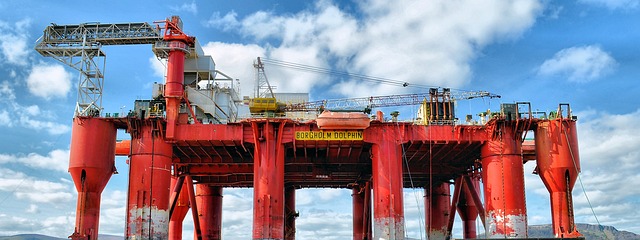Oil Rig Jobs: Your Guide to Breaking into the Offshore Industry
Oil rig jobs offer a unique and potentially lucrative career path for those seeking adventure and high-paying opportunities in the energy sector. This comprehensive guide will explore the world of offshore oil and gas employment, focusing on entry-level positions and how to start your career on oil platforms. Whether you're a recent graduate or considering a career change, understanding the ins and outs of oil rig jobs can help you make an informed decision about your future in this dynamic industry.

What are oil rig jobs and what do they entail?
Oil rig jobs encompass a wide range of positions on offshore drilling platforms, where workers extract oil and natural gas from beneath the ocean floor. These jobs can be physically demanding and require long periods away from home, typically working on a rotation schedule of several weeks on and off. Roles on an oil rig can include roughnecks, roustabouts, drillers, engineers, and various support staff such as cooks and medics. Each position plays a crucial part in the smooth operation of the rig and the safe extraction of valuable resources.
What qualifications are needed for entry-level oil rig jobs?
Entry-level oil rig jobs often don’t require extensive experience or education, making them accessible to many job seekers. However, there are some basic qualifications that most employers look for:
-
Physical fitness: The work is often strenuous and requires good health and strength.
-
Safety certifications: Basic offshore safety and emergency response training is usually mandatory.
-
High school diploma or equivalent: Most entry-level positions require at least this level of education.
-
Valid passport: As many rigs are located in international waters, a passport is essential.
-
Drug-free status: Regular drug tests are common in the industry.
Some positions may require additional certifications or vocational training, particularly for technical roles or those involving specialized equipment.
How can I start working on oil platforms?
Breaking into the oil and gas industry can be challenging, but there are several steps you can take to increase your chances of landing an entry-level oil rig job:
-
Research the industry: Familiarize yourself with the different types of rigs, job roles, and major companies in the sector.
-
Obtain necessary certifications: Complete basic safety training courses such as BOSIET (Basic Offshore Safety Induction and Emergency Training).
-
Build relevant skills: Consider taking courses in mechanical work, welding, or other technical skills valued in the industry.
-
Network: Attend job fairs, join industry associations, and connect with professionals already working in the field.
-
Apply widely: Submit applications to multiple companies and be open to starting in entry-level positions like roustabout or roughneck.
-
Be prepared for the lifestyle: Understand the demands of offshore work, including long shifts and extended periods away from home.
What are the most common entry-level oil rig jobs?
For those looking to start their career in the offshore oil and gas industry, several entry-level positions are typically available:
-
Roustabout: General laborer responsible for cleaning, maintenance, and assisting other crew members.
-
Roughneck: Works on the drill floor, handling drill pipes and operating equipment.
-
Motorhand: Maintains and repairs rig engines and other mechanical equipment.
-
Derrickhand: Works high up on the derrick, handling drill pipes during operations.
-
Floorhand: Assists in various tasks on the rig floor, including equipment maintenance and pipe handling.
These positions provide an excellent foundation for learning the industry and can lead to more advanced roles with experience and additional training.
What are the salary expectations for oil rig jobs?
Oil rig jobs are known for their competitive salaries, even at the entry level. However, it’s important to note that compensation can vary widely based on factors such as experience, position, company, and location of the rig.
| Position | Experience Level | Estimated Annual Salary Range (USD) |
|---|---|---|
| Roustabout | Entry-level | $40,000 - $60,000 |
| Roughneck | Entry-level | $50,000 - $70,000 |
| Derrickhand | Some experience | $60,000 - $80,000 |
| Driller | Experienced | $80,000 - $120,000 |
| Rig Manager | Senior | $100,000 - $200,000+ |
Prices, rates, or cost estimates mentioned in this article are based on the latest available information but may change over time. Independent research is advised before making financial decisions.
It’s worth noting that these figures often include overtime pay and may be higher due to the demanding nature of the work and extended time spent offshore. Additionally, many companies offer benefits packages that can significantly increase the overall compensation.
What are the challenges and benefits of working on oil rigs?
Working on an oil rig comes with its own set of unique challenges and rewards. Understanding these can help you decide if this career path is right for you:
Challenges:
-
Long periods away from home and family
-
Physically demanding work in potentially harsh conditions
-
High-stress environment with strict safety protocols
-
Limited personal space and privacy on the rig
Benefits:
-
High earning potential, especially with overtime and bonuses
-
Extended time off between rotations (e.g., two weeks on, two weeks off)
-
Opportunities for rapid career advancement
-
Travel and exposure to different cultures and environments
-
Sense of camaraderie among crew members
Oil rig jobs offer a unique blend of challenge and opportunity. While the work can be demanding, it also provides the potential for a rewarding career with excellent compensation and the chance to work in a dynamic, global industry. By understanding the qualifications needed, the types of entry-level positions available, and the realities of life on an offshore platform, you can make an informed decision about pursuing a career in this exciting field. Whether you’re drawn to the technical aspects of drilling operations or the prospect of working in a high-energy environment, oil rig jobs continue to attract those seeking adventure and professional growth in the energy sector.




